




























More Access Points, More Served, More Impact






























More Access Points, More Served, More Impact
At Home with Helping 6 The Road to The Wright Center . . . . . . . . . . . . . . . . . . . . . . . . . . . . . . . . 8 In His Second Career, Patients Come First 10 Out of Office 12 Dr. Jumee Barooah Named Designated Institutional Official . . . . . 14 Patient-Centered Medical Home and an FQHC-LA, All in One 16 More Access Points, More Served, More Impact . . . . . . . . . . . . . . . . 18
to Smile
Finding Purpose in Peer Navigation Support 24 No Safety Measure Too Big or Too Small . . . . . . . . . . . . . . . . . . . . . . 28
COVID-19 Education & Outreach Center 30 Engaged Stakeholders 32
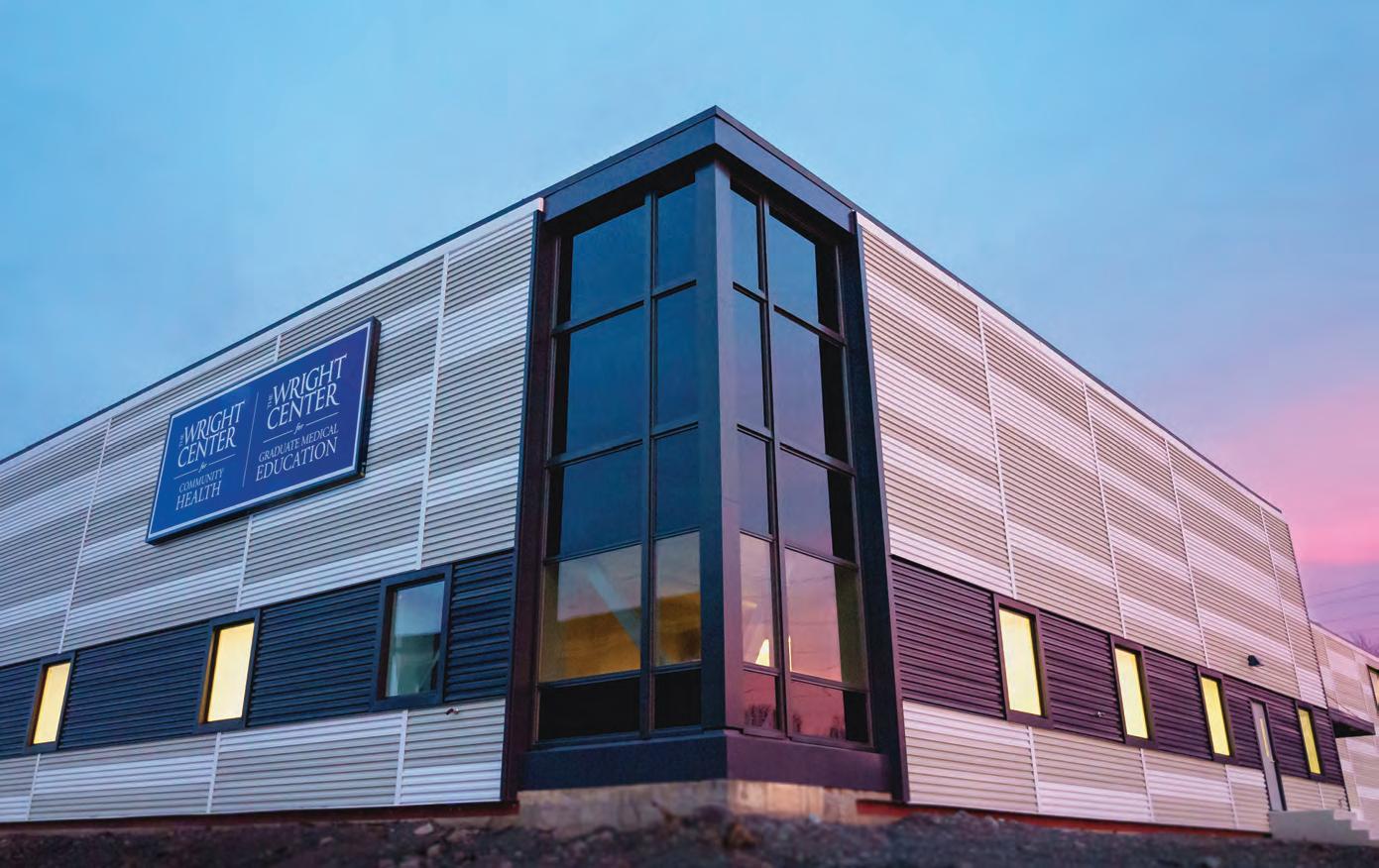
Looking back at the past 18 months, it’s amazing what we have accomplished together at The Wright Centers for Community Health and Graduate Medical Education The Wright Center for Community Health’s attainment of the Health Resources and Services Administration’s Federally Qualified Health Center Look-Alike designation has changed us forever for the better The current and futuristic positive impact of this designation on the health and welfare of the communities we serve, as well as the quality and competence of physicians that we train, is almost unimaginable The much-anticipated successful opening of our thriving, Scranton-based clinical-educationaladministrative hub certainly demonstrated our collective power
Unfortunately, just weeks into 2020, our world was changed forever by the unprecedented COVID-19 global pandemic that drastically altered our daily lives and our local, national and global communities COVID-19 tested the authenticity of our Essential Community Provider identity as a Graduate Medical Education Safety-Net Consortium by mandating demonstration of our passionate mission commitment and our ingenuity in both primary care delivery and medical education Often, the restrictions and challenges presented by COVID-19 felt surreal and insurmountable Yet, The Wright Centers for Community Health and Graduate Medical Education stood tall through the darkness and uncertainty of the pandemic, as beacons of unwavering focus on our mission and fierce dedication to serving and caring for our community
You’ll notice this Annual Report stretches beyond the historical precedent of a single calendar year set by prior editions Since the last six months have been anything but typical for our organizations, it made sense to extend our retrospective report to include the transformative early portion of 2020, highlighting seven themes that our organizations and I hold dear: leadership, courage, resilience, humility, generosity, service and hope .
In the pages ahead, you’ll see examples of our deep-rooted connections with communities we serve, both before and during the pandemic These examples demonstrate how our amazing employees consistently embody our core values in everything they do to deliver our mission and achieve our vision Inspiring moments of strength and signs of progress and innovation abound Leadership, courage, resilience, humility, generosity, service and hope have been visible and tangible across all venues of our clinical, educational and administrative pillars .
Just as we strive to meet patients where they are to support them, the community rallied around us in turn to support us during the COVID-19 crisis We felt the embrace of true partnership from longtime, loyal supporters, as well as from unsolicited and unexpected sources of help . Donations of homemade masks from talented seamstresses; Personal Protective Equipment from industrial companies; Wright Center-branded cookies from board members; and generous relief funds from local foundations and the federal government -- all served as welcomed gestures of gratitude and concern that boosted our collective morale The full faith and confidence our patients, families and communities have in us are obvious and motivating
Thanks to the tireless work and indomitable spirit of our governing boards, faculty, provider teams, staff, residents and fellows, amidst the pandemic, we stayed true to our noble, shared purpose to improve the health and welfare of our community through responsive and innovative health services and the sustainable renewal of an inspired, competent workforce that is privileged to serve As always, our doors have stayed open Our team members have remained courageously rooted to their posts We ensured safety in all of our care delivery and educational venues through nimble innovations to redesign and strengthen our clinical protocols and launch telehealth services effectively. We also proved our serviceminded dedication and outreach to those beyond our walls with successful implementation of our COVID-19 Educational Support and Clinical Coaching Program command center, which answered the anguished calls for help from personal care and long-term care facilities that were sounding across our Commonwealth
Notably, before the onset of and through the COVID-19 pandemic, we celebrated a number of great successes, which deserve special recognition Our HRSA Federally Qualified Health Center Look-Alike designation remains a tremendous accomplishment that is the culmination of many years of organizational learning and striving for excellence in primary health services delivery throughout Northeast Pennsylvania
We have proudly been doing the noble work of an Essential Community Provider for years, but achieving this crucial, formal designation has undeniably force-multiplied our capacity to provide high-quality, comprehensive and affordable primary health services to the patients and families we serve, regardless of their insured status and/or ability to pay
We have also made
“Alone we can do so little. Together we can do so much. Keep your face to the sunshine, and you cannot see the shadows.”
MESSAGE FROM THE PRESIDENT/ CHIEF EXECUTIVE OFFICER
huge strides in the integration of primary medical, dental, mental, behavioral, addiction and Ryan White health services for our community The evolving community benefit of these accomplishments are awesome and humbling .

We continued to demonstrate our full faith in and value placed on the integrated care Patient-Centered Medical Home model by not only growing and enhancing our primary health services, but also our Graduate Medical Education programs This was exemplified by the much-anticipated opening of our clinical, educational and administrative hub at 501 South Washington Avenue in South Scranton in early December 2019 This incredible structure, funded with federal, state and private philanthropy resources, was designed with intention and outfitted with smart technology throughout its work spaces Our new platform in Scranton proved itself as a strong and prepared shelter during the COVID-19 storm for patients, families, learners, clinical care and educational teams, our support departments and our community
A robust sponsoring institutional curriculum developed under the able leadership of our Designated Institutional Official Dr Jumee Barooah, a graduate of our Internal Medicine Residency, and has recently been amplified by the joyful reengagement of graduate Dr Ed Dzielak to lead the academic year 2020 launch of our longawaited Geriatrics Fellowship and our aligned commitment to the Institute of Healthcare Improvement’s “Creating Age Friendly Health Systems” initiative . These accomplishments reinforced the disciplined, brand-driven process of clarifying the independent, but synergistic, governance and financial structures of The Wright Centers for Community Health and Graduate Medical Education Our governance evolution story intensely illuminated the value of the two corporations’ inextricably linked shared purpose, while also stimulating fruitful engagement of leadership from A T Still University School of Osteopathic Medicine in Arizona and our four National Family Medicine Residency FQHC partners in the governance of The Wright Center for Graduate Medical Education Clinical training of interprofessional healthcare workforce fueled by our passionate physician faculty and resident learners, as well as visionary, committed leaders at our partnering organizations, showcases the undeniable, scalable, positive impact that community-
minded and community-trained primary care workforce can have within health systems and communities These learners are clearly amongst the most valuable architects of more effective, preferred, futuristic healthcare delivery and medical education systems in America, and we will faithfully educate them even more effectively because of lessons learned from the COVID-19 pandemic .
It was also very inspiring this past year to witness the altruistic leadership efforts of our residents and faculty at The Care and Concern Free Health Clinic at St John the Evangelist Church in Pittston, under the wonderful leadership of Dr Mark Madhok This volunteer-driven, Luzerne County-based expansion of our primary health services to the most vulnerable and underserved in our communities has emerged into a very powerful platform to expand full FQHC Look-Alike services and interprofessional education efforts . We further established ourselves in Luzerne County this year by assuming and expanding our family medicine residency’s clinical learning venue in Kingston in the summer of 2019 .
This Annual Report is a joyful reflection of our steadfast, collaborative, mission-driven work over the last 18 months, and it offers glimpses into our strategic plans for 2020 and beyond We will continue to steward federal, state, regional and local resources in alignment with our mission, and we will emerge from the global pandemic with new resiliency and improved standards of care delivery and education; affirmations and expansions of critical partnerships; and many memories and lessons learned to carry forward .
Thank you for being a substantive part of our Wright Center story, and thank you for all of your meaningful contributions to the delivery of our mission and achievement of our vision
I love my job, and I look forward to continuing this amazing and inspiring journey with all of you
With heartfelt gratitude,
LINDA THOMAS-HEMAK, M.D. CEO, THE WRIGHT CENTER FOR COMMUNITY HEALTH PRESIDENT, THE WRIGHT CENTER FOR GRADUATE MEDICAL EDUCATION“Amidst all of this emergence and change, our passionate focus on our community, our learners, and the patients and families we serve remains constant.”
“I can refer my patients to specialists I know and trust. I am confident these specialists will take care of my patients the way I would want them to care for my family members. I belong here, and The Wright Center provided me with the opportunity to stay here.”
 .O .
.O .

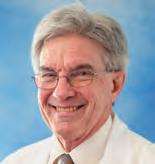
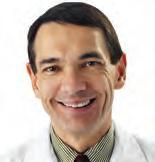
We are proud to celebrate the recognition of Dr. Michael E. Dietz, who oversees our Family Medicine residents at HealthSource in Ohio, as Mentor of the Year by the Ohio Osteopathic Association. Dr. Dietz is certainly deserving of this award, as he leads by example, consistently inspiring and encouraging our student learners who train with him in New Richmond, Ohio. “It is no surprise that Dr. Dietz was selected as Mentor of the Year,” shared Dr. Lawrence LeBeau, Program Director of our National Family Medicine Residency Program. “For many years, he has taken dozens of medical students and residents under his wing to kindly and compassionately teach them osteopathic medicine, personal and professional life skills, and provide physician and community leadership role modeling for these young physicians. I am delighted to see Dr. Dietz receive this recognition for his contributions to medical education. We are extremely fortunate to have him as a part of our program.”



Yet, when this family doctor chose The Wright Center for Graduate Medical Education for her residency training, she felt right at home
“If you want to take care of people, you have to understand their background It’s an advantage to a certain degree,” Dr Patrick explained “Although I attended medical school in Erie, my family is here, which is why I chose to do my residency here NEPA does have a way of calling you back home I already know a lot of people, and these are the people I want to serve ”
During her training, Dr Patrick became familiar with a variety of area specialists Making these professional yet personal connections helped her to feel confident in her decision to join PrimeMed Medical Group in Dunmore after graduation
Catherine Patrick, D .O ., raised in Northeast Pennsylvania, was not sure she would stick around .
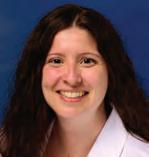
In Spring 2020, two Wright Center residents training at HealthSource of Ohio were elected to national leadership positions with The American College of Osteopathic Family Physicians (ACOFP). Dr. Loc Nguyen, right, was elected Chair, and Dr. Tiffany Crider, inset, was elected Vice Chair of the ACOFP Resident Council.
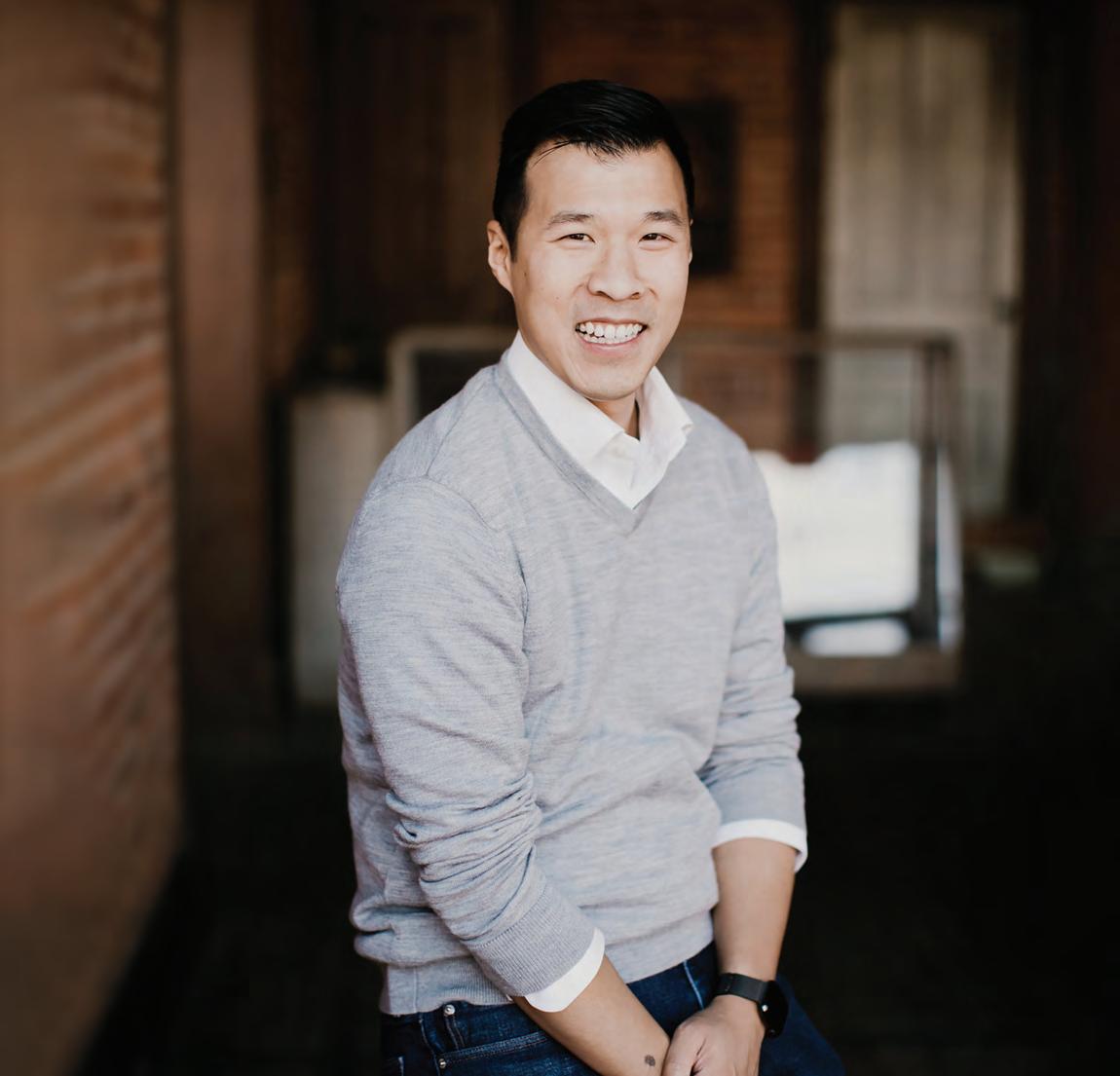
In December, The Wright Center for Graduate Medical Education coordinated its annual Poverty Simulation, which serves as a powerful teaching tool for residents and employees who volunteer as a part of the interactive event. This impactful simulation helps our student learners and staff understand the nature of poverty from a firsthand perspective and encourages participants to take action in working on solutions in line with our organizational mission.
Hundreds of residents train in dozens of Teaching Health Centers like ours across the country every academic year. Each of these programs relies on Teaching Health Center Graduate Medical Education funding, which requires support from Congress. In February 2020, Dr. Eleni O’Donovan, Senior Vice President and General Counsel Jennifer J. Walsh, Chief Resident Dr. Natasha Khawaja, Dr. Loc Nguyen and Executive Administrative Assistant Nora Dillon represented our programs in Washington, D.C.
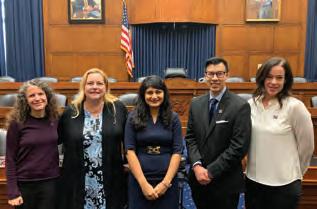

What’s one of the greatest benefits of recruiting from over 35 countries? The diversity of food! In April 2019, our residents and their families gathered for a night of food and friendship to share culinary dishes from their home cities around the globe.

“It’s been a very non-linear journey through medicine, but it’s been a wonderful experience I hope my story helps other people find the courage to change too,” Dr . Nguyen said .
The son of Vietnamese immigrants, Dr Nguyen trained in his childhood as a percussionist and considered pursuing music as a career In high school he discovered a great love of science, and as an undergrad volunteered in pediatrics at a hospital, which fueled his passion for caring for kids He went on to earn a pair of master’s degrees in biomedical sciences and healthcare administration and management before embarking on his medical school path He even trained as an OBGYN resident for a few years before finding his true calling in family medicine
“It bothered me that after spending so many months looking after patients, I found myself sending women to primary care doctors when they were no longer pregnant Luckily, I reached out to Dr Lawrence LeBeau and found The Wright Center, and that’s how I landed here . This program has offered me opportunities I never would have dreamed of ”
One of those opportunities came when HealthSource of Ohio had the privilege to host the U S Surgeon General, Dr . Jerome Adams, as well as Congressman Dr . Brad Wenstrup to discuss behavioral health, the opiate overdose crisis, marijuana use and increases in vaping amongst adolescents The group also talked about the importance of Community Health Centers (CHCs) and the vital role they play in making healthcare accessible to all Dr Nguyen stepped up and served as a fantastic ambassador and advocate for CHCs, and helped to highlight the important role residents play as a key part of their continued workforce .
“It’s funny that this is the route I took, but it’s been a great ride I’ve always been a believer that if you have the right mindset and work hard enough, things will turn out the way they’re supposed to Everything happens for a reason, and I’m a stronger person for it,” Dr Nguyen shared
The route Loc Nguyen, D .O ., took to his National Family Medicine Residency at HealthSource of Ohio was long and winding, but this Midwest native wouldn’t have done it any differently .


Medicine wasn’t the first love of Taisei Suzuki, D O , MIPH During his time overseas as a humanitarian aid worker for non-governmental organizations, Dr Suzuki learned the importance of the interconnectivity between access and health outcomes and saw firsthand the depths of health disparities He knew that inaction wasn’t an option Now, as a faculty member of our National Family Medicine Residency, he has a chance to treat the present and train the future of medicine . “Our program and patients are unique,” he said “Every day brings a new challenge, and it feels really good to be able to share my experiences as a graduate of our program with those who are currently going through it . ”
Dr Suzuki draws from his formative experiences to shape his practice “So many common illnesses are preventable I want to make prevention a priority for our patients and for the doctors we are training,” he added “I am lucky enough to have my preceptors from my time in residency still around as resources I hope to do the same for those who are training under me ” Dr Eleni O’Donovan, Local Program Director for our NFMR Program, counts Dr . Suzuki as one of the great success stories of a Wright Center graduate “Dr Suzuki is a gifted osteopath who is committed to the care of the nation’s most vulnerable patients, and he is a great example of the value of ‘training in place ’ We are incredibly lucky to have him,” she shared
“In our program, residents learn to build a rapport with their patients, while making the best use of the resources we have available. We teach our learners how to use medicine as a complement rather than a crutch. Our team’s dedication to our patients is second to none.”Taisei
Suzuki, D .O .DR. ELENI O’DONOVAN
AVERAGE BOARD PASS RATE: 95.52%
In the 2019−20 Fiscal Year, the Health Resources and Services Administration (HRSA) invested an additional $10.4 million into The Wright Center for Graduate Medical Education’s residency programs. HRSA has granted $90.7 million in funding to our organization since the initial award in 2011.

Further, in 2019, HRSA awarded $1,322,168 in additional grants to The Wright Center for Community Health to enhance patient access to right-venue primary care services.
Our team set out to validate HRSA’s investments and embarked on a MultiDimensional Evaluation Project (MDEP) to assess the tangible and intangible impacts of our integrated clinical/educational learning environments. The team included key leadership from The Wright Center for Graduate Medical Education and our FQHC NFMR partners, as well as accounting consultant Baker Tilly. In March 2019, the core MDEP team traveled to Maryland to present our findings from Phase 1 to Dr. George Sigounas, former HRSA administrator, and address the next steps. Phase 2 commenced upon return from that visit and encompassed a deep dive into the “gray zone” — the crucial, nebulous space where care delivery and education dollars meet.
Faculty, residents, fellows and staff from each of our disciplines — including cardiology, psychiatry, gastroenterology, family medicine and internal medicine — continue to present their scholarly work at regional, state and national events Some of the notable venues for 2019 included the American Psychiatric Association National Conference, the American College of Chest Physicians Conference, the Pennsylvania Gastroenterology Society Annual Meeting, the Pennsylvania Medical Society Annual House of Delegates Meeting and Educational Conference, the American College of Physicians PA Eastern Regional Meeting, the Cardiovascular Research Foundation’s Transcatheter Cardiovascular Therapeutics Annual Meeting (TCT2019), and the American Medical Association Research Symposium .
For the second year in a row, in November 2019, The Wright Center for Graduate Medical Education hosted the ACP Eastern Region Poster/Doctor’s Dilemma Competition at Geisinger Commonwealth School of Medicine Drs Bojana Milekic, Mark Madhok and Susan Baroody served as Program Chair, Chair of the Doctor’s Dilemma Games and Chair of Abstract Competition, respectively
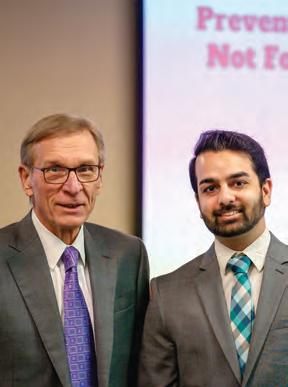
We continue to develop collaborative learning opportunities within our National Family Medicine Residency. In its fourth year, the El Rio Community Health Center/Wright Center for Graduate Medical Education Virtual Health Research Fair, in partnership with ATSU-SOMA, was a perfect example of these efforts, as it allowed the residents to share their Community-Oriented Primary Care research with attendees across the country who dialed in for the event
Internal Medicine Chief Resident Dr. Tapan Buch, who will continue his training in our Cardiology Fellowship Program, stepped up in a number of ways over this past year to serve as an awareness ambassador of how food choices and nutrition affect heart health. Dr. Buch made an appearance on an episode of “Call the Doctor” on WVIA-TV to discuss the importance of eating smart to stay healthy, and also presented a whole-food, plant-based luncheon during Nutrition Grand Rounds, where he shared the importance of preventive cardiology along with delicious, heart-healthy food. These initiatives spearheaded by Dr. Buch will dovetail nicely into the new Lifestyle Medicine Residency Curriculum being introduced to our Graduate Medical Education program in July. A collaborative initiative of Loma Linda University and The American College of Lifestyle Medicine, this new approach to wellness will seek to educate patients on the importance of lifestyle changes, which have the biggest impact on improving health outcomes and understanding of disease, and encourage them to take treatment into their hands. Once this curriculum is implemented, all residents, fellows and faculty will be eligible for board-certification in Lifestyle Medicine.
Our faculty, residents and staff continue to present scholarly work at regional, state and national events .
In June 2019, 57 physicians completed their training and celebrated this amazing accomplishment at our annual graduation ceremony. Many confirmed employment in community-based health systems, committing to practice in underserved areas across the country. It is also noteworthy that seven NFMR learners confirmed employment within the FQHC system where they trained. Of the 41 physicians who completed their training in our regional programs, 20 will continue their careers within Pennsylvania.

During the 2019-2020 Academic Year, we trained 215 residents and fellows, our largest cohort to date:
Internal Medicine Residents 105
Family Medicine Residents (National)* ................................................49
Unity Health Care, Washington, DC 17 El Rio, Tucson, Arizona ......................................................................12
HealthPoint, Auburn, Washington 12
HealthSource, New Richmond, Ohio 8
Family Medicine Residents (Regional) 37 Psychiatry Residents 14 Cardiology Fellows 7 Gastroenterology Fellows 3
* 12 National Family Medicine Residents are graduates of A.T. Still University School of Osteopathic Medicine in Arizona.





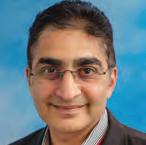


An alarming national prevalence of fatigue, burnout, depression and suicide during residency has necessitated immediate and sustainable cultural shifts. Accreditation, regulatory and medical professional entities have long called for initiatives and actions to address this growing crisis. As the residents hold powerful, often untapped, insights, this prompted the establishment of a peer-selected and Graduate Medical Education Committeeapproved House Staff Council Wellness Subcommittee. An institutional wellness curriculum to support a residentdriven approach was identified as a priority, along with resident recognition, reflective practice, intern support and promotion of comradery through community events. These initiatives are aimed at generating a cultural shift with residents as the drivers of change. Analysis of pertinent literature, resident surveys and resident discussion sessions indicated that the implemented changes were not only positively impacting the individual residents, but also their team dynamics and patient care outcomes. Some of our GME team members presented on this initiative at the National Resident Matching Program Conference in October.
Additional wellness efforts were led by our regional Family Medicine residents who completed a six-month wellness initiative sponsored by the Pennsylvania Osteopathic Medical Association (POMA). As a part of this effort, once a month, about 13 residents would gather to cook and enjoy healthy low-calorie meals (under 600 kcal), which ranged from baked salmon to Korean barbecue. At the end of the pilot, all participants agreed that maintaining a healthy diet

In January 2020, The Wright Center for Graduate Medical Education announced the advancement of Dr Jumee Barooah, an alum of our residency program, to the leadership role of Designated Institutional Official “Through her early years with our organization as an internal medicine resident and her subsequently joining as clinical faculty and blossoming her career as the Ambulatory Associate Program Director of our Internal Medicine Residency and Medical Director of our Wright Center for Community Health Mid Valley Practice, Jumee is a fabulous testament of delivery of our mission,” shared Dr Linda Thomas-Hemak “She is well respected and loved by her patients and families and our learners as well as all of us who have the privilege of working with her As our physician DIO, Dr Barooah will be an incredible, collaborative and high-integrity ambassador of our Graduate Medical Education Safety-Net Consortium throughout our community-based partnership training network . We are so happy and proud of Dr Jumee Barooah ”


Clinical operations staff closely follow and track all transitions of care visits to ensure that, as patients are getting discharged from inpatient facilities, a nurse care manager is proactively reaching out to conduct an assessment and to bring them in to be seen by their care team. Empirical evidence shows that when patients attend a face-to-face appointment with their primary care physician within the first 14 days of discharge, re-admission rates in the next 30 days decline considerably. Closing open referrals is another interdisciplinary team effort that not only keeps the patients’ health records current, but also allows us to identify any barriers to care that we
can alleviate. Since 2014, consultant Connie Sixta has helped us deploy new protocols that support this major quality improvement project between primary care providers and specialists, ensuring patients have access to the comprehensive services they need to get to the root of their health problems. This collaboration allows patients to share any concerns, such as financial barriers or lack of transportation, that may need to be addressed to ensure full compliance with their appointments and treatments.
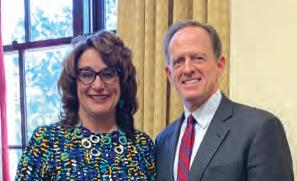
In September, Dr. Linda ThomasHemak visited U.S. Sen. Pat Toomey to seek his support for her nomination to HRSA’s Council on Graduate Medical Education. The Council provides ongoing assessment of physician workforce trends, training issues and financing policies, and recommends appropriate federal and private-sector efforts on these issues to the Secretary of the U.S. Department of Health and Human Services and to the Senate Committee on Health, Education, Labor and Pensions, and the House of Representatives Committee on Energy and Commerce.
In early 2020, Dr. Jignesh Sheth, Chief Medical Officer for The Wright Center for Community Health, was named Chair of the Steering Committee for Keystone Health Information Exchange. In this critical leadership position, Dr. Sheth will be able to help direct KeyHIE’s mission — to enhance healthcare delivery through a collaborative platform that provides a timely and secure patient-focused exchange of meaningful health information — while also giving The Wright Center an important voice at the table.
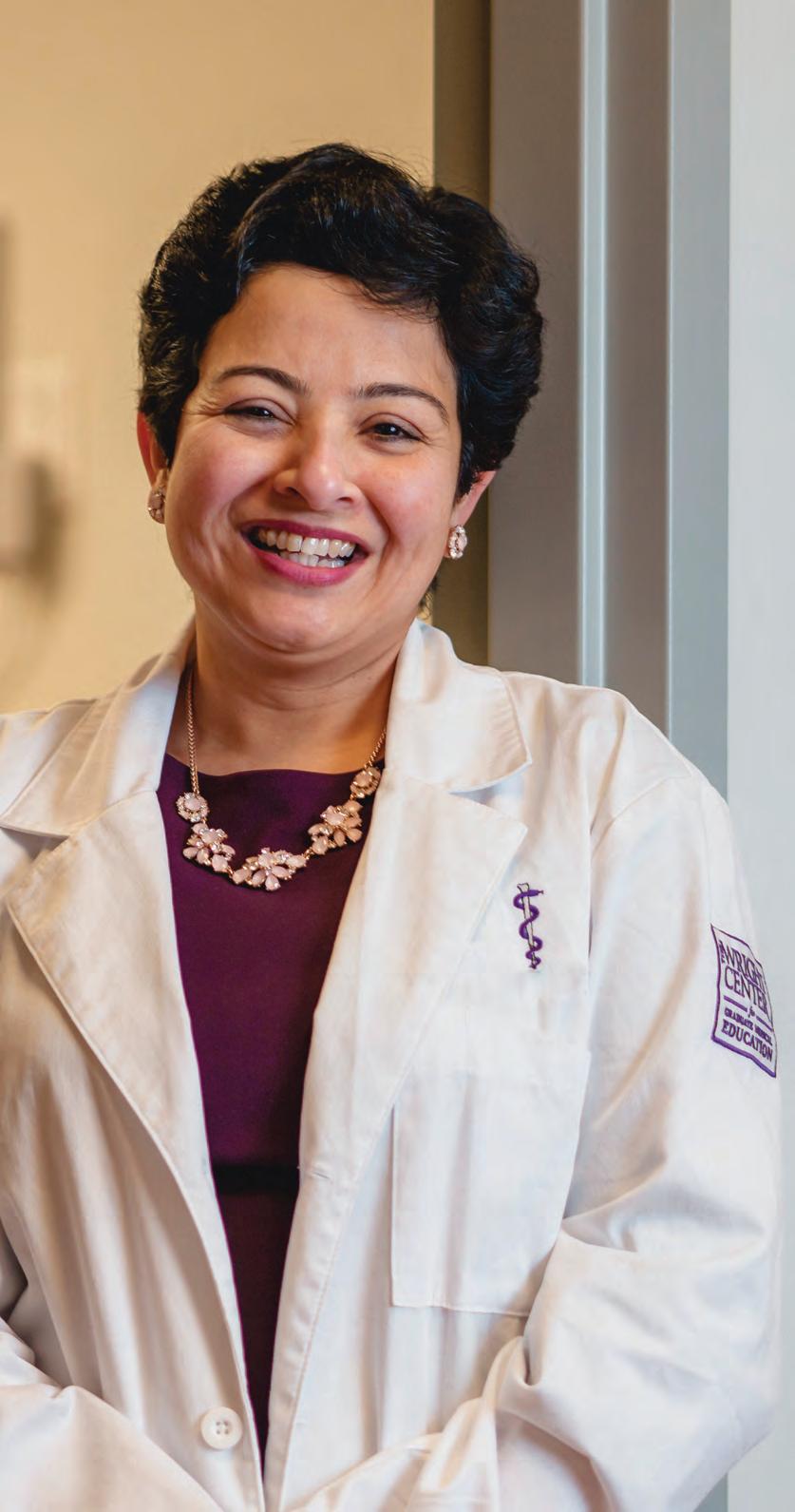
Our Opioid Use Disorder Housing Program was renewed for a second year of funding through the Pennsylvania Department of Human Services . In the first six months of the program between April and September of 2019, The Wright Center for Community Health and United Way of Wyoming Valley received more than 300 referrals and offered clients assistance with rental costs, hotel stays, utility bills and transportation while connecting them to local resources to support their lives in recovery .
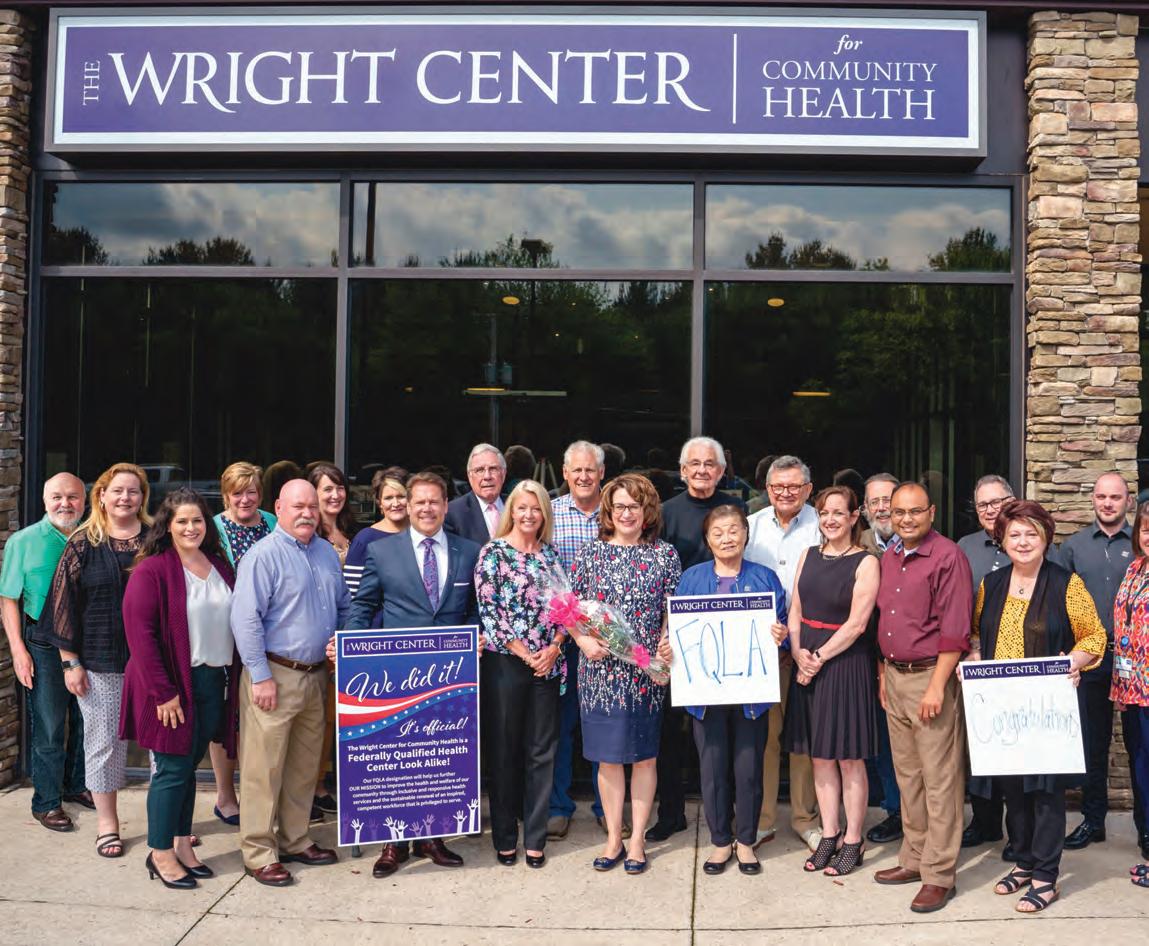
Our roster of providers has benefited from the joyful addition of psychiatrist Tasneem Khan, M .D ., who also serves as associate program director of our Psychiatry Residency program . Dr . Khan has been a practicing physician for over 20 years, and will help further our aim to fully fuse mental health treatment and primary care through the integrated training of all our ATSU-SOMA scholars .
assimilation
behavioral
physical
Tasneem Khan, M .D .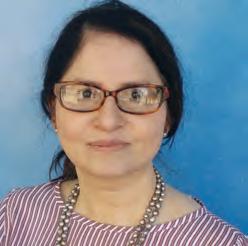

Our physicians and extenders take into account all aspects of a patient’s health — including behavioral health needs, oral care or addiction — to provide comprehensive care under one roof All practices follow the Patient-Centered Medical Home model, a delivery structure in which treatment is coordinated through a primary care physician to ensure that necessary care is received when and where a patient needs it . Since its inception, The Wright Center has served as a safety-net health care provider, ensuring that no patient is turned away or denied care due to inability to pay Although our organization had served all patients in a non-discriminatory way for decades, it had never attained formal designation as a Community Health Center or Federally Qualified Health Center (FQHC) That finally changed in May 2019, when we received notice of our successful application to become a Federally Qualified Health Center LookAlike (FQHC-LA) FQHC-LAs are eligible for federal support and negotiated Medicare reimbursement rates in alignment with the high-quality, accessible health care offered to all individuals in the service area Although FQHC-LAs do not receive the full benefits awarded to FQHCs, such as tort claims coverage, loan guarantee programs and additional grant funding to serve the uninsured, this important milestone was a significant part of the organization’s long-term sustainability plan and community-centered vision .

Dr. Linda Thomas-Hemak was appointed specialist faculty for the “Medication Through Opioid Use Disorder” curriculum of Penn State’s Project ECHO, a leadership initiative that connects academic hubs with community-based trenches where primary health care is delivered. Dr. Tasneem Khan and Dr. Jumee Barooah also joined the educational virtual sessions. “It’s a powerful and inspiring experience. I really believe it will have a significant impact on the care we provide to patients and families because it moves evidence-based knowledge and connects providers,” Dr. Thomas-Hemak shared.
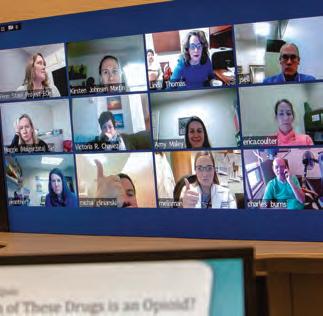
“Through the
of
and
health, we strive to work even closer together to best serve our patients and help our community acquire better overall mental health.”
Above: Scranton Practice Medical Director, Dr. Susan Baroody, had the privilege of caring for Bruce, a patient of ours for over 20 years, as the practice’s first official patient. President and CEO Dr. Linda Thomas-Hemak, as well as Director of Behavioral Health Scott Constantini; Practice Manager Shane Cobert; and Internal Medicine Resident Dr. Mirza Ahmad all stopped by to welcome him to the practice and thank him for being a part of such an exciting day.
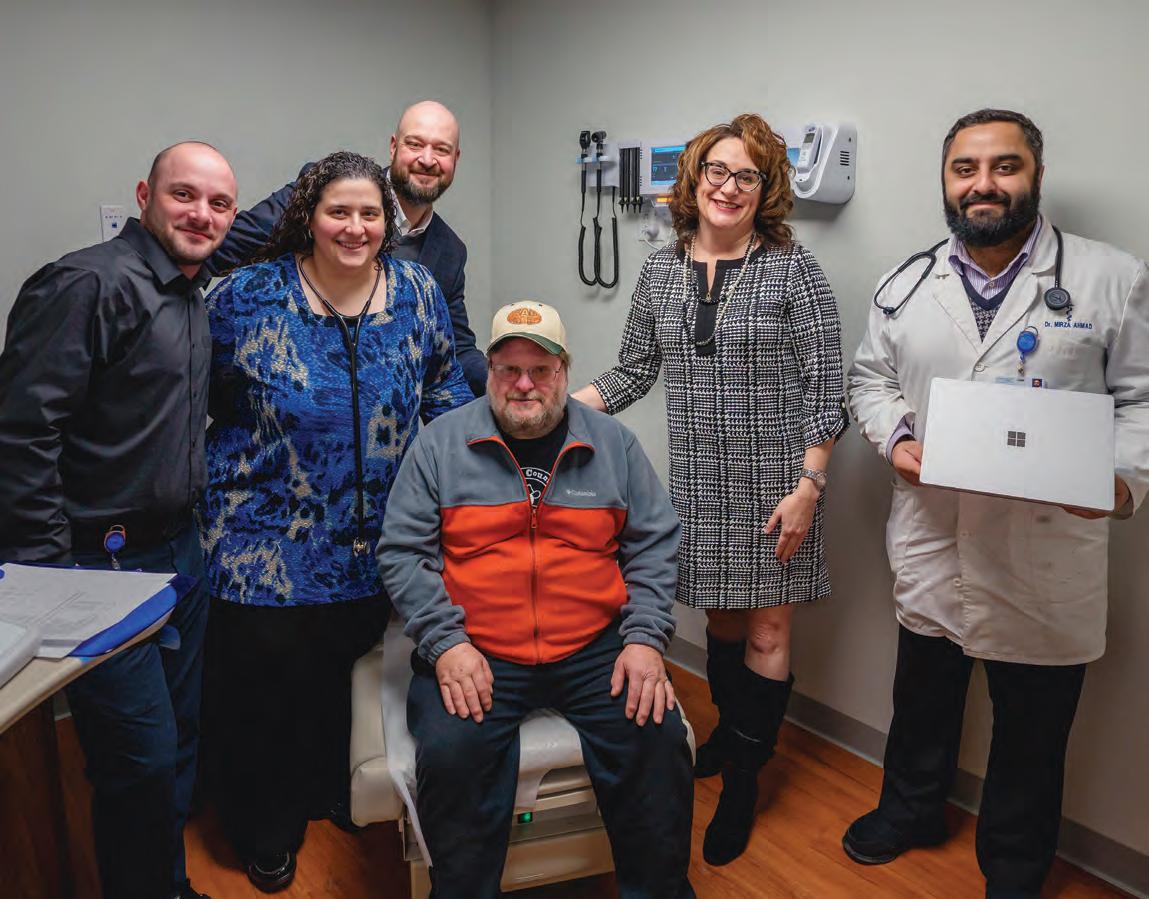
“If I had one word to describe the Kingston Practice, it would be ‘family.’ Over the past two years, I have gained invaluable experience and formed friendships that extend beyond the confines of the clinic. Our attendings have dedicated themselves to maturing residents into independent, efficient and caring family physicians,” shared Family Medicine Chief Resident Dr. Mandeep Singh.
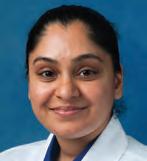
Our Kingston providers include, from left, Dr. Deborah Spring, Dr. Richard English and Dr. Maureen Litchman.
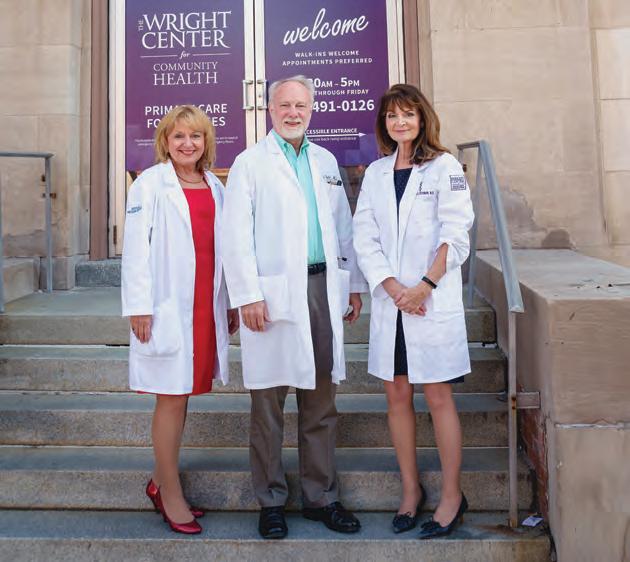
Pennsylvania’s Coordinated Medication-Assisted Treatment program is designed to increase MAT access throughout the state . Through PacMAT, 10 existing primary care practices in Lackawanna, Luzerne, Wyoming, Wayne and Susquehanna counties will engage and collaborate, using our established workflow and model, to care for individuals with opioid use disorder . We serve as one of the two “hubs” of the proposed network in Northeast Pennsylvania, sharing best practices with partnering “spokes” to address unmet treatment needs through prevention, treatment and recovery initiatives

Our organizational focus on increasing access to right-venue care, active patient empowerment, long-range and short-term prevention, and reduction of stigma drives our daily work These goals influence the development of service lines, patient- and family-centered programs and the geographic locations where we implement new practice initiatives To that end, The Wright Center for Community Health expanded its footprint in Lackawanna and Luzerne counties through the opening of our new flagship Scranton Practice in December and by assuming clinical operations of a thriving family medicine practice in Kingston in July 2019
The integrated clinical, educational and administrative hub at 501 South Washington Avenue expands the reach of downtown Scranton’s business economy into the city’s South Side The new Scranton facility is our largest clinical and learning environment, encompassing more than 25,000 sq ft and consolidating offices for multiple service lines, including an oral health clinic, our Ryan White Infectious Disease clinic, primary care, behavioral health, addiction medicine and more In Kingston, the practice, located at 2 Sharpe Street, had served as a key clinical learning environment for our Family Medicine residents for years, and this transition aligned with our plan to expand our reach into Luzerne County . Longtime providers and faculty members, Drs . Deborah Spring and Richard English, along with Regional Family Medicine Program Director Maureen Litchman, train residents and see patients of all ages at this location
As one of the leading Commonwealth of Pennsylvania Opioid Use Disorder Centers of Excellence — initially designated in 2016 and re-funded in 2018 — we have expanded access to Medication-Assisted Treatment and have established necessary social supports for individuals beginning or living life in recovery. We grew our team of case managers, certified recovery specialists, social workers and administrative professionals to provide holistic support, and all residents are now prepared and expected to become MATwaivered upon graduation. An ongoing language sensitivity campaign is emerging, and our 200+ residents — as well as board members, faculty and staff — signed the IHI’s Change the Narrative Pledge to ensure mindfulness of stigma and complex needs of individuals struggling with SUD.
100% MATWaivered

After serving patients in his private practice for 39 years, Joseph Ercolani, D.D.S., joined our Mid Valley team as a full-time staff member in September 2019, where he endeavors daily to alleviate pain and fears patients have about oral care. Dr. Ercolani was drawn to The Wright Center because of our mission-driven commitment to helping the underserved, and he has served as a key player in our efforts to expand clinical environments and to integrate service lines by helping our dental care practice grow.

The dental service line at our new Scranton Practice welcomed Dr. Caitlin McCarthy to the staff in 2019. Her favorite part of joining the team at The Wright Center? “We have a beautiful, state-ofthe-art office, and my team is fantastic! Everyone is dedicated to getting our patients the best care possible.”


Our growing dental service line also flourished under the capable leadership of Dental Practice Manager Kimberly McGoff, who joined The Wright Center in December. During an unprecedented time of growth and challenges, Kim emerged as a force of positivity for patients and employees alike.

Public health dental hygiene practitioners
Marisa Duchnik and Bernadette Lukasik earned certifications through the Commonwealth of Pennsylvania this year in order to combine the clinical work they do on a regular basis with an opportunity to help underserved populations in the area. In achieving this career goal, they join PHDHP Jenna Macejkovic, who earned her certification in 2017.
“This certification allows me to care for patients in communitybased settings like schools and other off-site locations. Because I can complete hygiene procedures without a doctor being present, I can meet patients where they are, which naturally increases access to dental care.”
MARISA DUCHNIK“I’ve been in the dental profession my entire life and I may have seen it all. Sometimes a simple, educational conversation about the importance of oral hygiene can be the difference between a lifetime of prevention and a lifetime of many painful dental procedures. I love working in an environment where I know I’m helping kids and adults make better choices.”
BERNADETTE LUKASIK
In January 2020, longtime employee Tiffany Jaskulski accepted the position of Chief Operating Officer for The Wright Center for Community Health. “Throughout her tenure with our organization, Tiffany has demonstrated her commitment to The Wright Center with innovative technologies and initiatives that elevate our nonprofit in stature and accountability. She is a dedicated worker who pursues every opportunity to improve our practices and designations, and I have no doubt she will bring this same tenacity to her new leadership role of COO,” explained Dr. Jignesh Sheth. “I am very excited to be a part of such an integral piece of The Wright Center puzzle and help take the organization to the next level for the community,” Tiffany said.

In January 2020, Wright Center alum Erin McFadden, M.D., joined the team as a new Internal Medicine Physician Faculty/Regional Director Medical Education at our Scranton Practice. She quickly stepped up to become a terrific ambassador for The Wright Center, often jumping in front of TV cameras or responding to interview requests to spread awareness of all that our organization can do for the community.

In February 2020, The Wright Center for Community Health welcomed Dr. Rajeswari Cheerath, a board-certified general pediatrician with special interest in pediatric obesity, sleep disorders and pediatric asthma, now sees patients at our Mid Valley Practice. Dr. Cheerath was excited to join The Wright Center thanks to our core values and our demonstrated success in Northeast Pennsylvania and beyond. “I like the mission and how we’re growing,” she shared. In her short time with us so far, Dr. Cheerath’s compassionate care has shown deep impact with the families she serves.


In 2019, Susan Baroody, D.O., stepped up to become the Medical Director of our Scranton Practice. Accepting this leadership role at our new facility was a well-deserved advancement for Dr. Baroody, a graduate of The Wright Center for Graduate Medical Education’s Internal Medicine program who joined our staff as a physician and faculty member in 2010. In addition to caring for patients, Dr. Baroody has helped teach and mentor up-and-coming physicians engaged in the same training program she came through. Dr. Baroody demonstrates the best of our core values, and is one of our favorite success stories.
In 2020, Enrique Samonte, M.D., was named Medical Director of our Mid Valley Practice. In this new leadership role, Dr. Samonte will ensure the delivery of quality, integrated patient care across the clinic’s service lines. Dr. Samonte continues to serve as associate program director for regional family medicine as well as a member of the physician faculty. "I feel privileged to be tapped to take on this role. While it is a huge responsibility, I know I will succeed with the help of my colleagues. In this position, I hope to contribute even more to our mission of providing the best possible care for patients here in our community," Dr. Samonte said.

October 2019 marked the “first birthday” of the region’s Healthy MOMS (Maternal Opiate Medical Support) pregnancy-recovery initiative This robust community partnership brings together regional players in the healthcare, legal and social services sectors to care for women with OUD during both prenatal and postnatal periods, aiming to ultimately reduce their babies’ risk of neonatal abstinence syndrome
To date, the Healthy MOMS program has served 106 mothers and seen the births of 50 infants. We currently serve 56 moms in the program.*

*As of April 30, 2020
A group of Scranton Preparatory School students stopped by the Scranton Practice to offer hundreds of donated stuffed animals to Healthy MOMS program participants Local news media covered the heartwarming presentation, which united the generous, service-minded teens with grateful parents and some bear-y happy babies “It’s good to be part of giving back to the community,” said Maya Hemak, daughter of Dr Linda Thomas-Hemak “We do a lot of things with service, but it’s not often we get to see the rewards of it I feel really blessed to see the moms and babies,” classmate Maeve Mariotti added


After hearing about the Healthy MOMS program, sisters Ann Robinson and Maggie Samuels Saltz were inspired to contribute Ann and Maggie crocheted blankets, hats and scarves for newborns and their moms These handmade gifts serve as a reminder that our community is rallying for the moms as they navigate motherhood and recovery
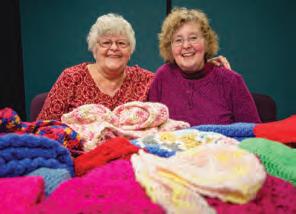
The NEPA Business Journal honored our employees with high-profile awards. Kathleen Barry and Joshua Braddell were spotlighted in the “Top 20 Under 40” list, while Dr. Linda Thomas-Hemak was named one of the “Top 25 Women in Business” in 2019. Dr. Jumee Barooah went on to earn the “Top 25 Women in Business” designation in 2020. Congrats to these powerhouse honorees!
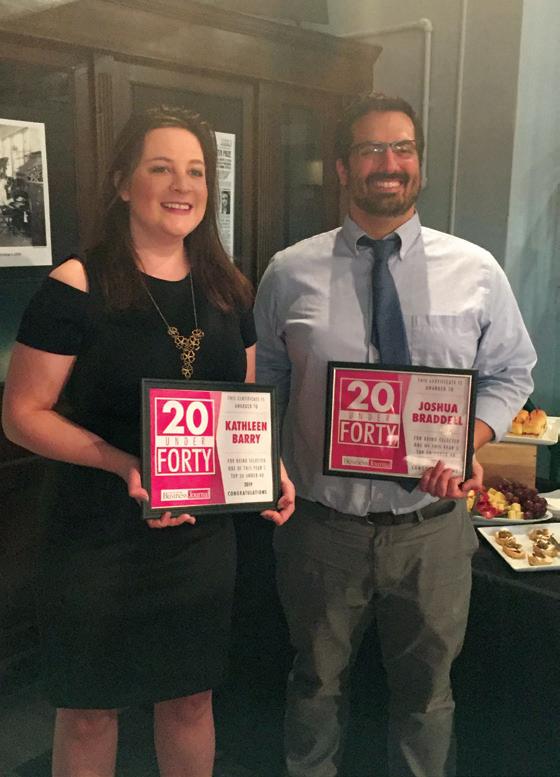
Dr. Linda Thomas-Hemak was spotlighted in the May 2020 edition of Happenings Magazine as one of The Most Influential Women of NEPA. In a stunning four-page spread, an insightful Q&A traces her steps from humble roots in Jermyn to her proud leadership of our mission-driven, nonprofit organization.
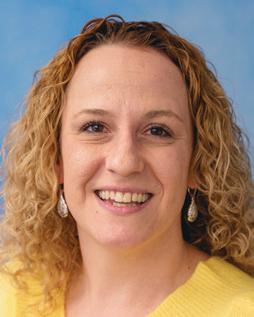

NAMI Scranton and Northeast Region is a nonprofit, grassroots, self-help support and advocacy organization aiming to raise awareness of prevalent mental/behavioral health issues and alleviate stigma surrounding mental health. In May 2019, our residents participated in its annual Walk for Mental Health Awareness. In October, Scott Constantini, Director of Behavioral Health, received NAMI’s Candlelight Award in recognition of his efforts toward improving the lives of people with mental illness in Northeast Pennsylvania.

We proudly recognized Sister Maureen Marion and Michele Coyle as the first members of The Wright Center Community Health Worker (CHW) team to be awarded advanced credentialing and certification by the Pennsylvania Certification Board. CHWs are trained public health workers who advocate for patients and serve as a bridge between communities, health care providers and state health departments. When CHWs earn licensing through the state’s Centers for Medicare and Medicaid Services, they can help to get patients appropriately insured.
We recognize the power of harnessing learner and team member ideas to find solutions to everyday challenges. Through our organizational “Plan. Do. Study. Act.” (PDSA) tracker, we continue to cultivate an “idea pool” where everyone is enabled and expected to contribute to a learning culture through stackable, deliberate and constructive improvements. Our team members are empowered to drive solutions and spread their lessons learned to other team members.
IN 2019, PDSAS BY THE NUMBERS: Completed 324 In Progress 456
NUMBER OF USERS ASSIGNED TO PDSAS STARTED IN 2019: Completed 2,083 In Progress 2,617
In 2019, we continued to gain national visibility for our patient-centered efforts, as evidenced by the participation of Dr. Shubra Shetty and Sister Ruth Neely, providers at our Ryan White Clinic in Scranton, in a roundtable discussion in Washington, D.C., convened by Secretary Alex Azar of Health and Human Services. Dr. Shetty and Sister Ruth have notable expertise in patient care, trust-building, adherence counseling and spirituality, and have been key forces in the impressive undetectable rates of patients at The Wright Center for Community Health’s Ryan White Clinic. Zaza Varsimashvili presented at the HRSA workshop held in December, highlighting our work and efforts to eradicate HIV, which sparked HRSA’s interest in inviting us to this roundtable.

When Gwendolyn Smith tells her clients they can not only survive, but thrive with HIV, she can point to one very powerful example — herself Gwen, a longtime patient at The Wright Center for Community Health’s Ryan White Infectious Disease Clinic, has spent the past year as the clinic case management program’s very first peer navigator — a position made possible thanks to funding from the United Way of Wyoming Valley .
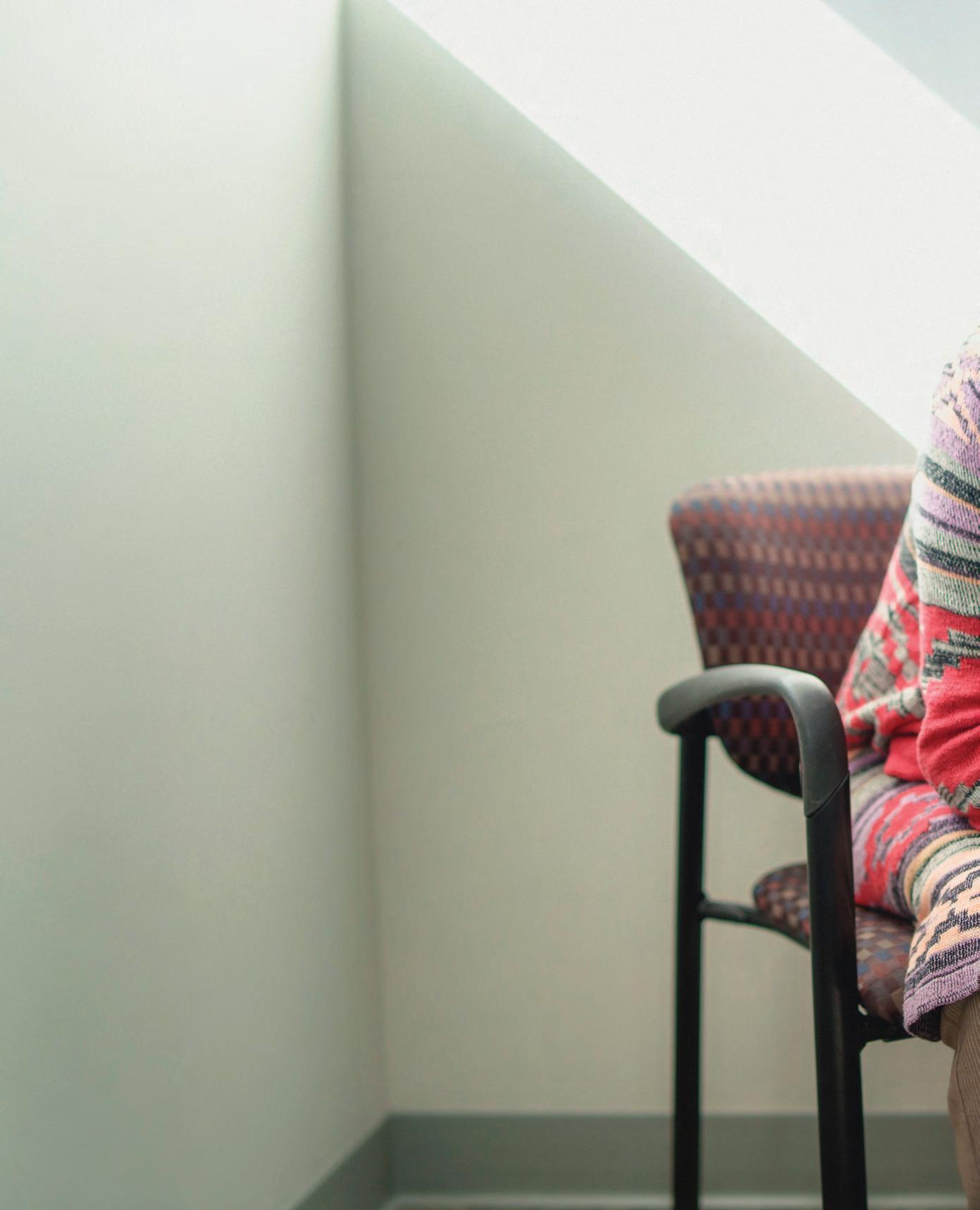
What Gwen gives the clinic’s patients that the other case managers can’t is a genuine firsthand perspective on the challenges of living with HIV Perhaps most importantly, she is the living proof that, with consistent medical care and dedicated case management services, patients can live long, healthy and productive lives in spite of the disease
While the case management staff meets with clients at The Wright Center, Gwen goes directly to them About 90% of the time, she visits clients in their homes, providing helpful advice on housing, insurance, food pantries and various other areas covered by case management’s funding These home visits also allow clients to speak candidly about their medical care and their struggles with the disease Some sessions can last 3−4 hours, and Gwen notes many clients even cook for her
“They have a lot to talk about There’s a lot of crying; they’re depressed,” said Gwen, known to many of her clients by her nickname, Peaches “They feel comfortable with me in their home and they can talk about HIV with me It’s just a different level of connection they have with me For me, it’s good because I get to see how they live I’m not there to judge, but I can tell they’re going through something just by how the house looks By the time I get home at night, I feel like I worked heavens ”
“I love working here — I have met so many interesting people.”
Gwendolyn Smith, Peer Navigator
The clinic continued serving a seven-county area in Northeast Pennsylvania, giving access to a full HIV care continuum to people living with HIV/AIDS (PLWHA) in its service area (Lackawanna, Luzerne, Wyoming, Wayne, Susquehanna, Pike and Monroe counties).
In 2019, 470 unduplicated RW Program patients received Early Intervention HIV/ AIDS Services (EIS), marking a slight increase from previous years.
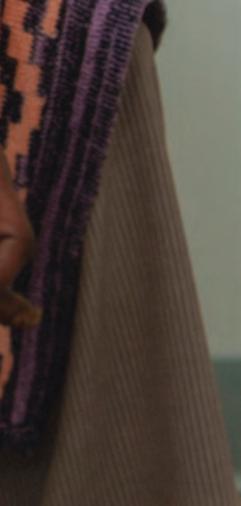
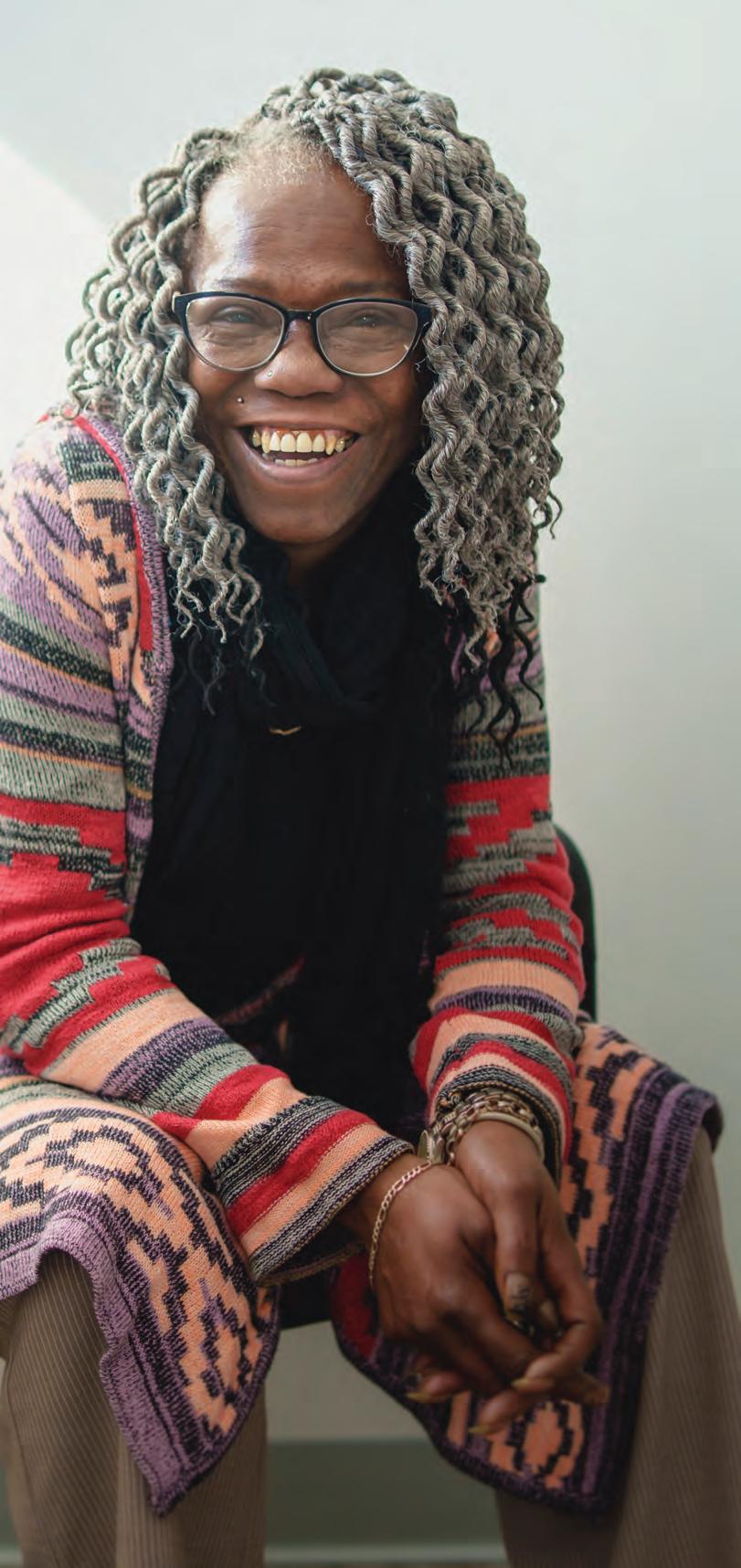
We started offering PrEP services to non-RW/non-HIV clients in late 2017 and this initiative is still ongoing. Some of our current PrEP patients are HIV-negative partners of our RW HIV+ clients, but the majority of others belong to the high-risk groups. PrEP expanded this year, and to date, 25 patients have been enrolled since the program started in late 2018 — nine of whom are currently active.
In 2019, we continued actively screening patients for the hepatitis C virus (HCV) and enrolled four RW patients into the HCV treatment program, resulting in 41 dually infected RW patients that have received treatment for HCV since the inception of the HCV treatment program at our clinic about four years ago.
The Medical Case Management Team provided case management services to 266 clients throughout the year.
The case management transportation assistance program has drastically increased over this past fiscal year. We have provided several hundred rides to our clients throughout the year and we have found that this program really helps to retain our clients in case management and medical care, while linking clients to needed services and resources.
The case management team successfully led and completed three food basket initiatives throughout the year, delivering 243 food baskets in total. We worked with our Registered Dietitian to determine the basket contents, aiming to make them as fresh and healthy as possible, while encouraging the clients to learn new cooking skills and increase selfsufficiency by providing recipe cards. In addition, 46 home visits were completed in collaboration with this initiative, and 17 clients who were non-compliant with case management guidelines were brought into compliance through this initiative.
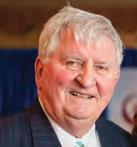

Longtime employee Gerri McAndrew, who transitioned from leading our Auxiliary to being named Director of Community Outreach and Engagement, led several initiatives to extend The Wright Center’s imprint in the communities we serve. Her team bookended 2019 with “Bags of Warmth” and “Rack of Warmth” projects, aiming to provide hats, gloves and scarves to community members in need during the coldest times of year. They also hosted a packed house for the annual Purse Bingo in May 2019 and provided more than 200 backpacks filled with school supplies in August. They joined forces with our Patient Engagement Council to provide lunch giveaways in the summer and hosted a Trunk ‘N’ Treat in October. All funds raised throughout the year — from raffles, donations and events — are used to build the “Angel Fund” to assist patients and community members.


Marah Lettieri joined the team as Director of Patient Outreach and Engagement, a complementary role to Gerri McAndrew that allows The Wright Center for Community Health to better target education and prevention initiatives in our community.

Dr. Linda Thomas-Hemak and Scott Constantini presented the risks, choices, myths and facts facing today’s youth to students and parents at Scranton Preparatory School. Certified Recovery Specialist Jason McConnell shared his deeply personal story of finding hope and resilience through recovery with more than 600 teens in attendance.

In March 2019, Dr. Jacques Amja, Dr. Ritika Paul and Dr. Rajaram Pattar visited two Wilkes-Barre Area Pre-K classrooms. The doctors shared healthy habits and the importance of hard work while encouraging the children to dream big.
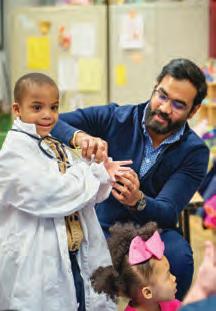

Hundreds of children attended September’s Fall into Health Fair, enjoying pumpkin decorating, face painting, yoga, raffles and an obstacle course, all against the backdrop of health and wellness screenings and a blood drive.




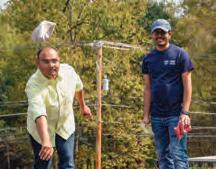
Aloysius Mark Madhok, M D , Ph D , a member of the core faculty of our Internal Medicine Residency Program, graciously joined the Care and Concern Ministry free clinic at St John the Evangelist Church in Pittston, and is expected to expand its scope in the years to come His selfless work in this capacity earned him the honorary title of Medical Director at the clinic
Gloria Adonizio Blandina, clinic director, explained that Dr Madhok stands out among the providers — and not just because of his trademark bow ties
“The clinic is very fortunate Dr Madhok decided to lend a helping hand His medical expertise, compassion and kindness gave new energy and hope to all around him, staff and patients alike,” she said
The work at the clinic has been an eyeopening experience for the doctors serving there, Dr Madhok shared
“Faculty and residents who have been volunteering at this site have found this experience overwhelmingly satisfying, clinically and humanistically speaking, in seeing the undocumented, poor and homeless of Luzerne County helped. From our experience over the last year of volunteering, we have seen an adequate volume of patients and encountered diverse pathologies, required for their training. I believe this will enrich our student learners’ clinical exposure.”
 Dr Mark Madhok
Dr Mark Madhok
What started as a regional outbreak of novel Coronavirus in Wuhan, China, quickly escalated into a global pandemic that upended the lives of millions of Americans. And while COVID-19 may have forever changed the way we live, work and play, the constant force throughout this turbulent time has been the commitment of The Wright Center to the communities we serve.
Thanks to the integrity of our governing boards, the foresight of our talented management team and the unwavering support and performance of our dedicated and courageous employees, we have witnessed the benefits of preparation and collaboration play out across all Wright Center locations. Now, more than ever, our community truly feels and appreciates our presence and service. We have not only supported the needs of our patients, families and colleagues, we also connected public officials to the realities of the COVID-19 pandemic in our communities and in the trenches, while mutually learning and sharing best practices with partners across America.
Each and every day, we collectively grew more and more inspired by the mission-driven services we were able to deliver despite unprecedented and sometimes insurmountable challenges. But we persevered, Wright Center-style.

As our frontline student learners navigated the pandemic, Chief Residents stepped up to create a COVID-19 Response Team for each practice location that provided comprehensive support to all clinical and support staff.
Whether through private Facebook groups or open-access appointments granted by The Wright Center’s Behavioral Health Department, employees, faculty and staff did what they could to ensure that there are no delays or barriers to supportive resources that were needed by resident physicians. Licensed behavioral health clinicians at each Wright Center location devoted weekly windows to residents to provide outlets directly or else link them to behavioral health services in the community or resources for self-care and stress management as needed.

Throughout COVID-19, the Executive Leadership team participated in numerous calls to gain strength through collective thinking and problem-solving with our state and national peers in the FQHC network.
Dr. Linda Thomas-Hemak attended AllOne Foundation’s Coronavirus Leadership Summit, a major gathering of area mayors, hospital CEOs and other healthcare professionals to discuss the response to the Coronavirus outbreak in Northeast and North Central Pennsylvania.
Our executive team also joined a conference call hosted by HRSA’s Bureau of Primary Health Care that included Secretary of Health and Human Services Alex Azar, who pointed out that FQHC-LAs, like The Wright Center, play a critically important role for millions across the country by serving the most impacted citizens, including the homeless, low-income and the under/uninsured, by granting access to life-saving healthcare services.
Dr. Thomas-Hemak, Dr. Susan Baroody and Dr. Jignesh Sheth also participated in COVID-19-specific sessions with Penn State’s Project ECHO, focusing its collaborative care model on the pandemic.
To prevent the spread of COVID-19, a negative-pressure, military-grade ventilation tent took up residence in the parking lot of our Mid Valley Practice, allowing us to continue to provide comprehensive primary care services to our patients in a safe environment Local media touted the impressive structure, which proved more remarkable than those at local hospitals, while Dr Jignesh Sheth made front-page news locally and across the Associated Press wire services throughout the state and country

Despite national shortages of Personal Protective Equipment (PPE), Dr Sheth and Associate Vice President of Patient Safety and Quality Sheila Ford worked tirelessly to shore up resources for all of our clinical locations, and even in the hospital systems where our residents and fellows were serving on the frontlines At the peak of COVID-19, inventory of our weekly use and need of PPE was staggering:
All residents, providers and frontline staff were given N95 masks, while physicians were outfitted with prescription PPE-approved eyewear Clinical Operations safety precautions expanded to include professional infection control and cleaning by professional bio-hazard teams, which grew to include the implementation of bi-weekly “dry-fogging” throughout buildings by environmental control teams Cough and sneeze guards were erected at all screening and check-in areas, and additional hand sanitizer units popped up throughout all practices



With more than 65,000 seniors in assisted living facilities throughout Pennsylvania, COVID-19 took a catastrophic toll on this vulnerable patient population The Wright Center sprang into action by establishing a command center on the second floor of our Scranton Practice in partnership with the Pennsylvania Department of Human Services (DHS) and the Educational Support and Clinical Coaching Program On a daily basis, a dedicated team of resident doctors, led by Dr Erin McFadden and supported by Certified Registered Nurse Practitioner Susan Scanland, reached out to assisted living and personal care facilities daily — swiftly completing initial contact with more than 180 facilities in the Northeast sector of the state As the COVID situation escalated, we were asked to extend our services across 13 counties This amazing taskforce provided clinical guidance, replenished PPE supplies, addressed workforce needs, and provided Telehealth medical appointments as needed
With the help of the Chief Information Officer and Vice President for Information Technology and Innovation, John Janosky, The Wright Center was the first health system out of seven across the Commonwealth to share important virus data with state officials Our team’s organization and sense of urgency provided real-time updates to the state government To further assist DHS with making referrals to healthcare organizations, John also mimicked our clinical Call Log App to create a system for the state that streamlined incoming calls based on urgency
When the State asked for help, we answered the call .
During a period of vast uncertainty, we all pulled together to support the surrounding community. Demonstrating a collective dedication to safeguarding the health and well-being of those we serve, The Wright Center for Community Health collaborated with multiple community partners to host an Emergency Drive-Through Food Giveaway March 25 at our Mid Valley Practice, handing out more than 1,000 bags of food to a line of 650 cars that stretched for miles. Our April 25 COVID-19 Emergency Drive-Through Food Giveaway in Pittston also demonstrated heartfelt community engagement thanks to the leadership efforts of event coordinator Marah Lettieri, site host and board member Jody Cordaro, and 30 staff volunteers, who served 540 families that day.
While we committed to helping others, we were also on the receiving end of countless donations. From construction companies donating masks and gloves to fellow nonprofits and private citizens sending gowns and disinfecting wipes, these contributions enabled the fulfillment of our mission while replenishing morale and hope:
Sarah Bednar
Omar Camacho
The Adcroft Family
Alicia Marcos
William Ling
Jody Cordaro
David Benway
Marian Wezmar
Mabel Stubbs
Maria Zanghi
Casandra Washo
Joseph Kalinowski
Mr. and Mrs. Ted Zenzai
Ed Walsh
Sister Maureen Marion
Alycia Macros
Kathy Statsman
Kathy Moran
Mary Ann Chindemi
Paul Wisniwski
Dave Soblick
Thomas Sudlesky
James Moran
SCE Environmental Group, Inc.
Wilkes-Barre Volunteers in Medicine
McKesson Benco Dental Sordoni Construction
RJ Walker Plumbing & Heating Kuharchik Construction Mystic Phoenix Lackawanna Data
Exceptional Payments
Friends of the Poor Family to Family Food Basket Program

Commission on Economic Opportunity
Weinberg Northeast Regional Food Bank Parker Hill Church Revolutionary Ice Centre Gerrity’s Supermarket
Updated list of donors as of May 2020
The Wright Center also received generous grants supporting our COVID-19 efforts: $160,352 from Moses Taylor Foundation to fund significant equipment and supplies that keep our staff and patients safe.
$75,750 in Coronavirus Aid, Relief and Economic Security (CARES) Act funding specifically targeted for our Ryan White specialty clinic’s HIV/AIDS programs.
$629,051 more through the CARES Act’s COVID-19 Telehealth Program through the Federal Communications Commission, both of which were secured with help from U.S. Rep. Matt Cartwright.
$34,000 in COVID-19 Relief for Critical Community Organizations through the Highmark Foundation to strengthen our capacity to serve those who are uninsured and underserved during the COVID-19 pandemic.


$49,787 from the COVID-19 Response Fund for Community Health through Direct Relief in recognition of the profound effects that the pandemic has had on community health centers’ finances, staff members’ safety and wellbeing, services and the patients who rely on them.
The Wright Center adopted digital solutions to stay meaningfully connected to patients. Our patients, in turn, embraced these technological solutions and new care delivery models.
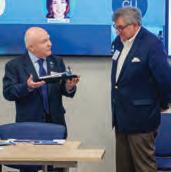
Gerard Geoffroy, a Jermyn resident, has been a patient of The Wright Center for more than 20 years and is a fervent advocate of having patient representatives at the governance table His passion for healthcare was ignited while caring for his late wife during her illness, and he continues to advocate for patient education and quality healthcare delivery He sits on all of the organization’s boards, serving as Chair of The Wright Center for Community Health Board, Co-Chair of the Patient Engagement Council, Vice Chair of The Wright Center Alliance and Vice Chair of the Community Health Hub
The Wright Center for Community Health and The Wright Center for Graduate Medical Education are independently governed, nonprofit entities led by engaged and diverse board members committed to effective organizational oversight The Community Health Board is led by a patient majority to ensure that the authentic voice of the individuals served is always at the forefront, with the remaining members made up of community advocates, educational institution representatives and volunteers, who remain passionate about patient engagement and advocacy, affordable and quality care, patient-centered services and a healthier community
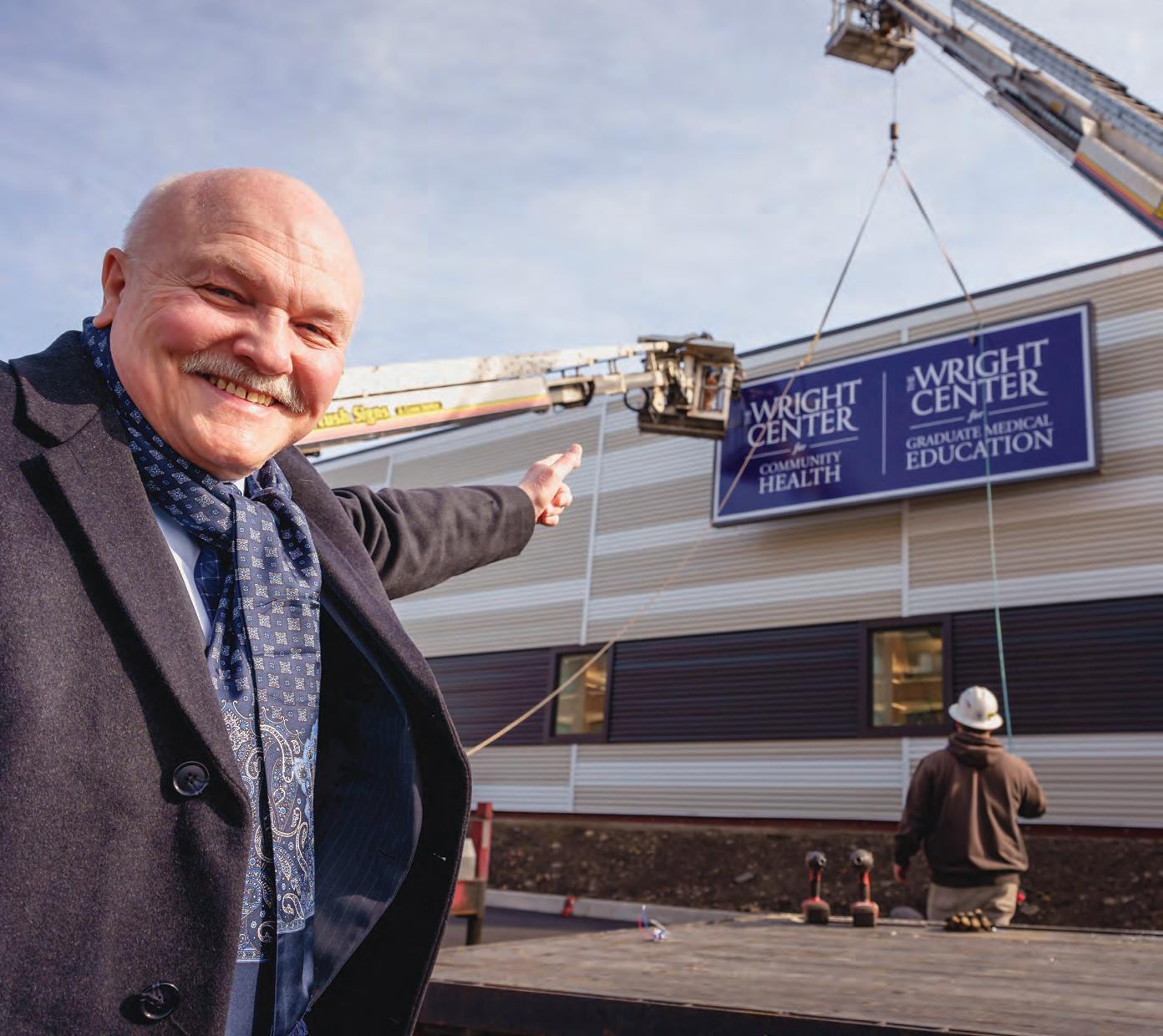
The Graduate Medical Education Board members are fully committed to elevating the educational and clinical learning experiences for medical residents and interprofessional learners throughout Northeast Pennsylvania and across the country This board includes Wright Center graduates, physician-faculty members, stakeholders from educational institutions, leadership from other FQHCs and community advocates focused on elevating the GME experience to cultivate physicians who are acutely focused on the Quadruple Aim — better health outcomes, enhanced care experience for patients, reduced cost of care and joy
We also gratefully recognize the time given by two notable former directors who generously served on our Boards Our GME Board was strengthened through the commitment of leaders in medical fields who hold a special place in their heart for TWCGME, like Mary Sewatsky, M D An alumna of the Scranton-Temple Residency Program (now TWCGME), she graciously served as Vice Chair of this board in 2019 We also thank Carlon Preate, who is an indelible part of our history thanks to his tenure as inaugural chair of the Community Health Board and subsequent service as its Immediate Past Chair Carlon also served as Chair of the Alliance and as a Director for GME
William Waters, Ph.D., a patient of The Wright Center for more than 15 years, brings the perspective of an educator and patient to the boardroom. He currently serves as Vice Chair of the Community Health Board, Secretary of the Community Health Hub and Treasurer of the Patient Engagement Council. Dr. Waters served for 31 years in New Jersey’s education system as a mathematics teacher, supervisor, assistant principal and district director of instruction. He was also the founding director of The Academy for Mathematics, Science, and Engineering at Morris Hills High School, a highly ranked county magnet school. Dr. Waters has presented on topics such as strategic planning and professional development at the local, state and national levels.
A retiree of General Dynamics, Kim Heritsko was inspired to join our Community Health Board of Directors because of her genuine interest in the organization’s community initiatives. She also strives to advocate for those facing language barriers in need of care — a critical social determinant of health — as she has faced similar challenges throughout her life. An avid world traveler, Kim brings years of cultural experience gained from her journeys to more than 50 countries across the globe to our Board right here in Scranton.





Our Graduate Medical Education Board of Directors proudly welcomed Harold Baillie, Ph.D., as Chair. He is an expert in fields that include healthcare ethics, metaphysics and political philosophy. A published author of scholarly articles on all three subjects, Dr. Baillie brings years of teaching experience — both locally, at The University of Scranton, and abroad, at several international universities — to the GME table.

Catherine Genco brings years of discipline and a strong team mentality to our Patient Engagement Council (PEC) that she honed over the years as an elite athlete and coach. Matriarch of a family of long-time patients of The Wright Center for Community Health, she has a strong business acumen that serves as a great asset to the council. Catherine, a NEPA native, attended Fordham University on a full basketball scholarship and went on to earn an MBA before embarking on a career in marketing and operations. With close to three decades of athletic coaching and active volunteerism under her belt, Cathy’s proven history of adolescent advocacy introduces a welcome new perspective to PEC.
A Luzerne County native, Kristen Hill became a vocal advocate of The Wright Center after moving to Lackawanna County in 2015. Along with her husband, Doug, the Jermyn stay-athome mom to daughter Giada takes an active role in enhancing her community. Kristen brings years of working in banking, finance and retail to our Community Health Board of Directors. Her goal in serving is simple: to represent fellow patients in the boardroom.
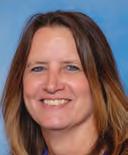

Through her service with various community-minded organizations and her extensive volunteerism, Deborah Kolsovsky’s background made her a perfect addition to our Community Health Board of Directors. That her experience as Executive Vice President and Managing Director for Institutional Asset Management (an outsourced arm of PNC Bank) included working with corporations, government entities, pension and defined contribution plan clients, endowments and foundations proved an added bonus for this qualified and capable board member.
A serial entrepreneur who during his career founded several biopharmaceutical companies and now holds seats with many local boards, we gratefully welcomed the expertise Robert Naismith, Ph.D., brought to our GME Board of Directors. A highly decorated career man and lauded guest lecturer and adjunct professor, Dr. Naismith’s business acumen is a most welcome addition to our governance, especially as he serves as Secretary of the GME Board.
Pennsylvania Coordinated Medication Assisted Treatment Program: Pennsylvania Department of Health
Parker Hill Church Healthy Maternal Opiate Medical Support (Healthy MOMS)
Gift: Parker Hill Church
Support Services Navigation and Housing Services for Individuals with Opioid Use Disorder: Pennsylvania Department of Human Services
Wayne County Medication Assisted Treatment: The John and Helen Villaume Foundation
Rural Communities Opioid Response Program — Implementation: Health Resources and Services Administration
Pregnancy Support Services: Pennsylvania Department of Drug and Alcohol Programs
Pennsylvania Department of Health: Pennsylvania Coordinated MedicationAssisted Treatment
Targeted Capacity Expansion: Medication Assisted Treatment – Prescription Drug and Opioid Addiction: Substance Abuse and Mental Health Services Administration
Teaching Health Center
Teaching Health Center GME Noncompeting Continuation for Internal Medicine, Regional Family Medicine, and National Family Medicine (Newly Funded: Geriatric Service Line): Health Resources and Services Administration
Primary Care Training and Enhancement Noncompeting Continuation: Health Resources and Services Administration
Health Resources and Services Administration Primary Care Teaching and Enhancement Subaward: A. T. Still University
Health Resources and Services Administration Integrating Behavioral Health and Primary Care Subaward: A. T. Still University
Ryan White Clinic
Ryan White Part C Outpatient Early Intervention Services Program: Health Resources and Services Administration
Ryan White Part B Subcontract: United Way of Wyoming Valley Geriatric Service Line
Geriatric Service Line Grant: Moses Taylor Foundation
Improving Mental Health Outcomes for Older Adults through a CommunityBased Collaborative and Collective Impact Intervention: AllOne Foundation
The Wright Center for Community Health Scranton Practice
Scranton Practice Laboratory and Triage Fit-Out: The Willary Foundation
The Wright Center for Community Health Scranton Practice Operating Grant: The Harry and Jeanette Weinberg Foundation
The Wright Center for Community Health Scranton Practice Capital Grant: The Harry and Jeanette Weinberg Foundation
The Wright Center for Community Health Scranton Practice: William Randolph Hearst Foundation
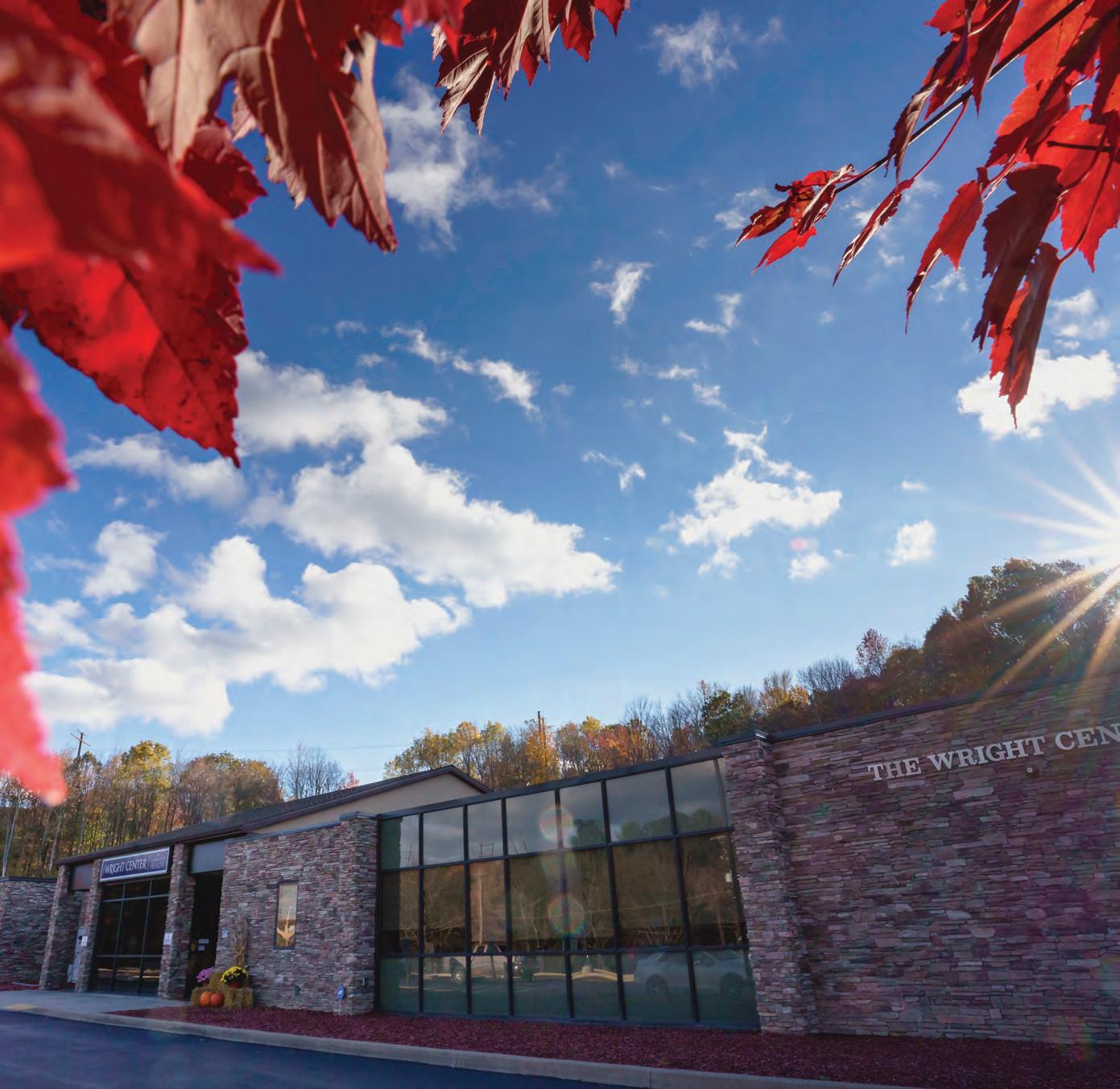
Neighborhood Assistance Program
Special Program Priorities: Pride Mobility: Pennsylvania Department of Community and Economic Development
Education, Outreach, and Access
Wright Center Health Literacy Program: Luzerne County Head Start
National Network of Libraries of Medicine Health Information Outreach Subaward: University of Pittsburgh
Language Translation Services for Patients at Luzerne County Clinics: Luzerne Foundation Youth Advisory Committee
Rural Health
Community-Based Health Care Program: Pennsylvania Department of Health School-Based Health Centers
See to Succeed Subaward: United Way of Wyoming Valley
COVID-19 Response
Essential Community Provider Emergency Response: Moses Taylor Foundation
Ryan White HIV/AIDS Program Part C Early Intervention Services COVID-19 Response: Health Resources and Services Administration
COVID-19 Telehealth Program: Federal Communications Commission
FQHC Look-Alike COVID-19 Response Funding: The Highmark Foundation
COVID-19 Response Fund for Community Health: Direct Relief
as of May 4, 2020
578 total workforce 249 staff hired
173 new positions created 58 career advancements
Our organization has stewarded local, state and federal resources into the economy of Northeast Pennsylvania through workforce production, job opportunities and physician retention for more than 40 years The Wright Center for Graduate Medical Education has received revenue from federal grants, hospital affiliations (residency and fellowship agreements) and reimbursements, IRB and research fees, as well as interest and dividends The Wright Center for Community Health has also received supplies and revenue from patient services, grant support, 340B drug pricing and various other contributions .
Data for 2018−2019 Fiscal Year (July 1, 2018−June 30, 2019)
Combined Net Operating Revenue $45.3M
Combined Net Assets ....................................................................................................................... $16.3M
Salaries and Benefits as a percentage of Combined Total Operating Revenue 66%
Data for 2019 Calendar Year (January 1, 2019−December 30, 2019)*

Value infused into the regional economy $54.7M Jobs supported annually
784 Labor income $45.0M Monetary output $93.3M
In October 2019, our leadership joined prominent executives, politicians and community stakeholders at the Westmoreland Club in Wilkes-Barre for a thought-provoking Regional Executive Strategic Council meeting As a result of the engaging conversations held during this inaugural gathering, we ignited impactful legislative activity beyond the walls of The Wright Center When the Regional Strategic Council reconvened at our Scranton Practice in February 2020, talks of furthering interoperability of electronic health records to better serve patients in our community and across the country became a primary focus
*Data calculated by The Institute for Public Policy and Economic Development. Includes direct, indirect and induced effects.

Despite the struggles of COVID-19, progress at The Wright Center has not slowed What started as a vision for a new practice location in Hawley is now a reality for the vastly underserved patient population in Wayne and Pike counties Our Facilities Team is already hard at work painting, furnishing and prepping our newest clinic in anticipation of serving our first patients by July 1, 2020 .
Through the demonstrated success of nine clinical locations across Northeast Pennsylvania, the stage is now set to expand the delivery of comprehensive, high-quality, accessible health care to more communities Just six months after settling in at our clinical, educational and administrative hub at 501 South Washington Avenue in Scranton, our Executive Team is still identifying opportunities aligned with our mission to expand our offerings throughout the region This entails identifying the area’s most pressing health issues and medically underserved patients
To achieve our vision of a future in which we have flipped the paradigm of health care from treatment to prevention, we continue to focus on reaching younger children through school-based health centers that also teach resiliency and healthy habits . We’re also expanding our graduate medical education programs to include Lifestyle Medicine and Geriatrics Fellowships to better integrate comprehensive primary care across every stage of life The Lifestyle Medicine curriculum will focus on exercise, whole-food, plant-based nutrition, behavioral change and self-care The Geriatric Service Line will meet the needs of Pennsylvania’s expanding population of senior citizens and lack of doctors who specialize in the physical, mental and behavioral health challenges specific to them This includes The Wright Center’s new Alzheimer’s and Dementia Clinic, which will offer comprehensive evaluation and testing along with personalized care plans to help patients and families navigate the complex medical, behavioral and social needs of an Alzheimer’s diagnosis
Our Ryan White Infectious Disease Clinic remains ever vigilant in providing healthcare services for patients with infectious diseases across a seven-county area in Northeast Pennsylvania . For more than a decade, the clinic has also been a critical resource for thousands of people living with HIV and has been recognized as a community leader in preventing the spread of HIV
We continue to embrace integrated primary care, behavioral health and addiction/recovery services, while advocating for total health information and data-sharing interoperability. We are proud to not just continue but expand our Opioid Use Disorder Center of Excellence and Healthy MOMS initiatives .
Meanwhile, our greatest hope lies in our dedication to training the future primary care workforce, who will carry these noble pursuits forward for generations to come We are excited to further nurture the UME/GME primary health care workforce pipeline through strengthened and expanded partnerships with GCSOM and ATSU-SOMA It is our mission to reap the force-multiplying economic and public health benefits of retaining this inspired, competent workforce in the communities we serve Most importantly, we remain committed to keeping our patients healthy Armed with multiple lessons learned and entrenched national efforts, we are more determined than ever to achieve our 10-year target of being recognized by the president of the United States as the Health and Human Services Gold Standard for community-based primary healthcare and workforce development by June 30, 2027

Our board members who unselfishly dedicate their time and expertise; Our residents and fellows who entrust us with their education;
The patients and families who place their confidence in our care teams;
Our employees and staff who deliver our mission and vision every day; Our community, which shapes our experience and allows us to serve.
The Wright Center for Community Health is patient- and community-governed to ensure a patient-led majority, in alignment with Federally Qualified Health Center Look-Alike requirements. The Wright Center for Community Health Board gives voice to individuals, families and communities, and provides meaningful contributions and guidance to ensure that we deliver care to the nation’s most vulnerable and underserved patients and families, in alignment with the mission of HRSA and the Bureau of Primary Health Care.
THE WRIGHT CENTER FOR COMMUNITY HEALTH
Gerard Geoffroy, Chair
William Waters, Ph.D., Vice Chair
John Kearney, Treasurer
Mary Marrara, Secretary
Carlon Preate, Immediate Past Chair
Sandra Browder
Shane Cobert
Jody Cordaro
Mary Ann Chindemi
Patricia DeSouza
Susan Duckworth
LeeAnn Eschbach, Ph.D.
Joseph Ferrario
James Gavin Kim Heritsko
Kristen Hill Tracy Hunt
Deborah Kolsovsky
Luci Kura
Lewis Marcus
Jeffrey Metz
Ken Powell
Melissa Simrell
Honorable Edward Staback
Francis Stevens
Ellen Walko
AFFINITAS HEALTH INNOVATIONS INC.
Linda Thomas-Hemak, M.D., President
Carlon Preate, Vice President
Gerard Geoffroy, Secretary
John Kearney, Treasurer
Joseph Ferrario
James Gavin Mary Marrara
Jignesh Sheth, M.D.
THE WRIGHT CENTER FOR GRADUATE MEDICAL EDUCATION
Linda Thomas-Hemak, M.D., President
Harold Baillie, Ph.D., Chair
James Gavin, Vice Chair
John Kearney, Treasurer
Robert Naismith, Ph.D., Secretary
Jumee Barooah, M.D.
Thomas Bisignani
Patrick Conaboy, M.D.
Douglas Coslett, M.D. Joseph Ferrario
Judy Featherstone, M.D.
Gerard Geoffroy
Sister Maryalice Jacquinot Scott Jenkins Vincent Keane
Mary Marrara
Julie Nardella, Ph.D. Sharon Obadia, D.O. Michael Paglia, M.D. Kim Patton
Carlon Preate
Lia Richards-Palmiter, Ph.D. Carol Rubel
Douglas Spegman, M.D.
COMMUNITY HEALTH HUB
Linda Thomas-Hemak, M.D., Chair
Gerard Geoffroy, Vice Chair
Mary Marrara, Treasurer
William Waters, Ph.D., Secretary
Carol Chaykosky
Mary Ann Chindemi
Patricia DeSouza
LeeAnn Eschbach, Ph.D. Frank Koza Melissa Simrell
THE WRIGHT CENTER ALLIANCE
Linda Thomas-Hemak, M.D., President/CEO
Carlon Preate, Chair Gerard Geoffroy, Vice Chair John Kearney, Treasurer/Secretary Susan Duckworth Joseph Ferrario James Gavin Mary Marrara Jeff Metz
Jignesh Sheth, M.D. Honorable Edward Staback
PATIENT ENGAGEMENT COUNCIL
Linda Thomas-Hemak, M.D., Co-Chair Gerard Geoffroy, Co-Chair Mary Marrara, Vice Chair
LeeAnn Eschbach, Ph.D., Secretary William Waters, Ph.D., Treasurer John Baldino David Bieri
Karen Case
Gail Cicerini
John Devine Cathy Genco Charles Hemak Frank Koza
Kellen Kraky
Marianne Linko
Geraldine McAndrew Carol Rubel
Lorraine Lupini Donna Passino
Sarah Quinlin-Sheridan Tammy Saunders Elaine Shepard Ellen Walko
THE LIST ABOVE INCLUDES ALL INDIVIDUALS WHO SERVED ON A BOARD AT ANY TIME FROM JANUARY 1, 2019 - APRIL 30, 2020. FOR A CURRENT LIST OF BOARD MEMBERS, VISIT THEWRIGHTCENTER.ORG/OUR-BOARD-MEMBERS.
To improve the health and welfare of our community through inclusive and responsive health services and the sustainable renewal of an inspired, competent workforce that is privileged to serve.
To integrate patient care delivery, workforce development and innovation to be the leading model of primary healthcare in America.
501 South Washington Avenue, Suite 1000, Scranton, PA 18505 | phone: 570.343.2383 | TheWrightCenter.org
This project is supported by the Health Resources and Services Administration (HRSA) of the U.S. Department of Health and Human Services (HHS) as part of an award totaling $17,349,000 with 51% financed with non-governmental sources. The contents are those of the author(s) and do not necessarily represent the official views of, nor an endorsement, by HRSA, HHS or the U.S. Government. For more information, please visit HRSA.gov. This information or content and conclusions are those of the author and should not be construed as the official position or policy of, nor should any endorsements be inferred by HRSA, HHS or the U.S. Government. The Wright Center for Community Health and its affiliated entity, The Wright Center for Graduate Medical Education, does not discriminate on the basis of race, color, national origin, sex, age or disability in its health programs and activities.